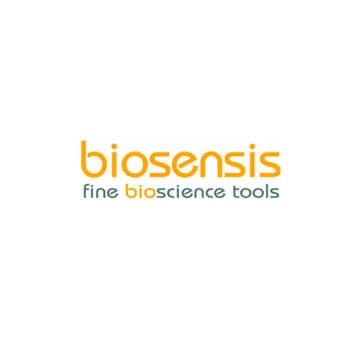
Supplier:
Aviva Systems Biology IncorporatedPRostate specific antigen (psa) ENZYME IMMUNOASSAY TEST KIT (96 Wells)
The monitoring of PSA concentrations in serum has become indispensable in the management of samples with primary or recurrent prostate cancer7-12. PSA, being a constituent of normal prostatic secretions, is found in the sera of normal samples at concentrations generally <4 ?g/L, as quantified by the Hybritech Tandem-R PSA immunoassay13. This cited пїЅnormal rangeпїЅ is not absolute, being influenced by differences among calibrators in the various PSA immunoassays, by the inclusion criteria used to select the subjects, and by population demographics14. Also, increases in PSA to 4-10 ?g/L are not uncommon among samples with benign prostatic hyperplasia (BPH) or prostatitis. Nevertheless, Catalona et al.15 and other scientists16 demonstrated an increase in the cancer detection rate when PSA values were acquired as one aspect of a sample screening protocol.
Measurement of serum PSA concentrations can be an important tool in monitoring samples with prostatic cancer and in determining the potential and actual effectiveness of surgery or other therapies. Recent studies also indicate that PSA measurements can enhance early prostate cancer detection when combined with digital rectal examination (DRE)17.
Enzyme Immunoassay for the Quantitative Determination of Prostate Specific Antigen (PSA) in Human Serum
Principle of the assay: PSA ELISA test is based on the principle of a solid phase enzyme-linked immunosorbent assay.18-20 The assay system utilizes a goat anti-PSA antibody directed against intact PSA for solid phase immobilization (on the microtiter wells). A monoclonal anti-PSA antibody conjugated to horseradish peroxidase (HRP) is in the antibody-enzyme conjugate solution. The test sample is allowed to react first with the immobilized goat antibody at room temperature for 60 minutes. The wells are washed to remove any unbound antigen. The monoclonal anti-PSA-HRP conjugate is then reacted with the immobilized antigen for 60 minutes at room temperature resulting in the PSA molecules being sandwiched between the solid phase and enzyme-linked antibodies. The wells are washed with water to remove unbound-labeled antibodies. A solution of TMB is added and incubated at room temperature for 20 minutes, resulting in the development of a blue color. The color development is stopped with the addition of 1N HCl changing the color to yellow. The concentration of PSA is directly proportional to the color intensity of the test sample. Absorbance is measured spectrophotometrically at 450 nm.
Prices direct from Aviva Systems Biology Incorporated
Quick response times
Exclusive Absave savings/discounts
Applications
ELISA
Reactivities
Hum
Applications
ELISA
Reactivities
Hum
Applications
ELISA, WB
Hosts
Mouse
Applications
IHC
Hosts
Mouse
Latest promotions
Buy any polyclonal or monoclonal antibody from our extensive range of pre-made antibodies and for a limited time only receive a $50 discount!(T&C apply:...
New brilliant antibodies, and new lower prices!For flow cytometry reagents in general, \"bright is better.\" The violet-excitable BD Horizon™ BV421 and...
10% Discount on 2 Rabbit Polyclonal Antibody Service. With over 20 years experience, SDIX has developed into the premier US custom antibody producer,...
For the past decade scientists have extensively used ATS secondary toxin conjugates to make their own targeted toxins for in vitro use.The ability to combine...
We're so sure that you'll prefer Cayman Assay kits over your present brand that we're willing to give you a free assay kit to prove it!
Did your supplier increase the price of Fetal Bovine Serum? Did they substitute the US Origin with USDA? Well say no more! Innovative Research is still...
Bulk Cytokines with Custom Vialing.20 - 50% off cytokines, growth factors, chemokines and more...For a limited time Cell Sciences is offering substantial...
Are you planning to have a customised antibody made for your research?Since 2000, Everest has been producing a catalog containing thousands of affinity...
Top suppliers
Agrisera AB
11 products
Biotrend
Biosensis
969 products
ABBIOTEC
3011 products
SDIX
1 products
Spring Bioscience
2291 products
Cell Signaling Technology
4976 products
Rockland Immunochemicals, Inc.
7592 products
Boster Immunoleader
1533 products
OriGene Technologies Inc.
5281 products
Maine Biotechnology Services
227 products
BD (Becton, Dickinson and Company)
1 products
ABNOVA CORPORATION
Randox Life Sciences
1502 products










